Student Reflection: Engaging History, Humanity, Moral Education
By Gina LeCause '25, Maggie Nguyen '25
As future educators and literacy advocates, we often discuss the power of story—but
this week, we lived it.
During our time at the Holocaust Museum Houston as 2025 Warren Fellows, we experienced profound moments of learning, reflection and transformation that reshaped our understanding of teaching history and humanity.
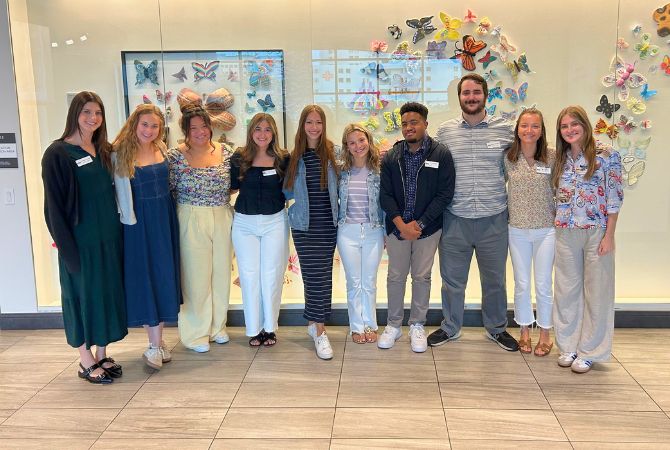
Today, we share some of the most impactful moments from each day of the Fellowship—lessons that will shape the way we educate future generations.
Day 1
The program began by introducing us to the life of Naomi Warren, the Holocaust survivor
whose story inspired the Fellowship. Hearing from her family members made her legacy
real, reminding us that we were now stewards of stories that matter.
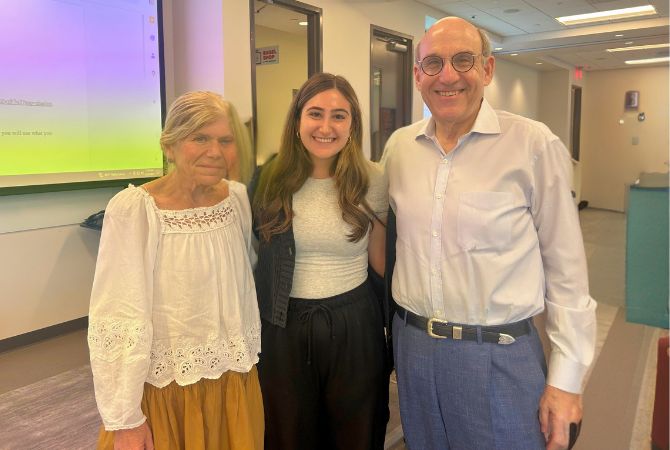
Dr. David Rich’s session on the persistence of antisemitism reframed the Holocaust not as a past event, but a warning. Touring the museum’s Holocaust Gallery brought the historical weight to life. We saw not just statistics, but stories. The day underscored this: The Holocaust didn’t begin with violence. It began with words.
Day Two
Tuesday focused on our role as educators. The museum’s education team encouraged us
to avoid overwhelming students with statistics or romanticizing history. Instead,
we were challenged to humanize and contextualize.
We also heard from historian Dr. Benjamin Carter Hett, author of The Death of Democracy, who powerfully reminded us, “Built by hate but paved by indifference.”
That evening, we attended the LBJ Moral Courage Award Dinner. One of the most moving moments was hearing from the parents of Hersh Goldberg-Polin, an Israeli-American hostage killed by Hamas in 2023. Their grief, paired with unwavering courage, reminded us that antisemitism remains a very real threat.
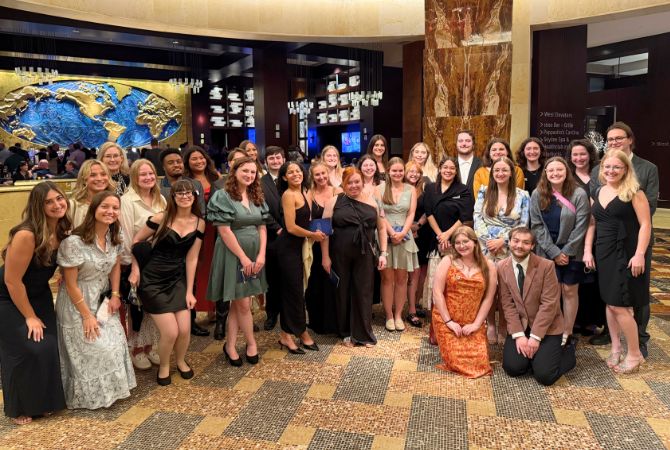
“It helped me understand why connecting major events to the individuals affected by them is so important,” said 2025 Warren Fellow Marie Onishi. “Real life accounts motivate us to be upstanders.”
Day Three
On Wednesday, Dr. Ewa Schaller’s presentation on “The Holocaust by Bullets” revealed
that more than a third of Holocaust victims were killed in mass shootings. The documentary
Ordinary Men showed how average individuals, under the right conditions, could become perpetrators.
Yet in this heavy truth, we found resilience—through survivor Bill Orlin’s testimony and the powerful art of Samuel Bak.
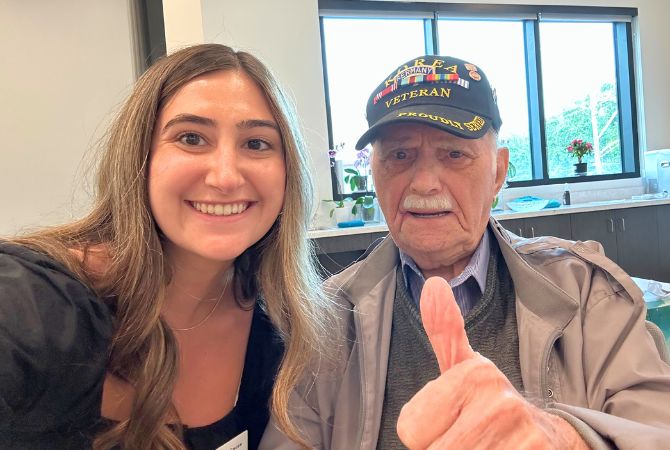
“It was very inspiring to hear from an actual Holocaust survivor and put a face to what happened,” said Hunter Ferguson, 2025 Warren Fellow.
Day Four
Author Alexandra Zapruder shared diary entries from young Holocaust victims, reminding
us that these were children with dreams and fears—just like the students we’ll teach.
Dr. Jan Lacina’s session on using children’s literature to teach this topic was especially
meaningful for us as aspiring educators.
Later that evening, we gathered for a farewell dinner at Kenny & Ziggy’s Delicatessen. Naomi Warren’s son, Benjamin, spoke about how delis serve as cultural landmarks of Jewish resilience and joy. It was a powerful reminder: Jewish life didn’t begin or end with the Holocaust.

Day Five
Our final day was about reflection and resolve. Dr. Myfanwy Lloyd shared the story
of Naomi Warren and Arthur Tyler, an African American soldier who, with a simple note,
reminded her she wasn’t alone. That message—choosing compassion, even when it’s inconvenient—will
stay with us forever.
We were reminded again that the Holocaust was not inevitable. Tragedy happens when people stop caring.
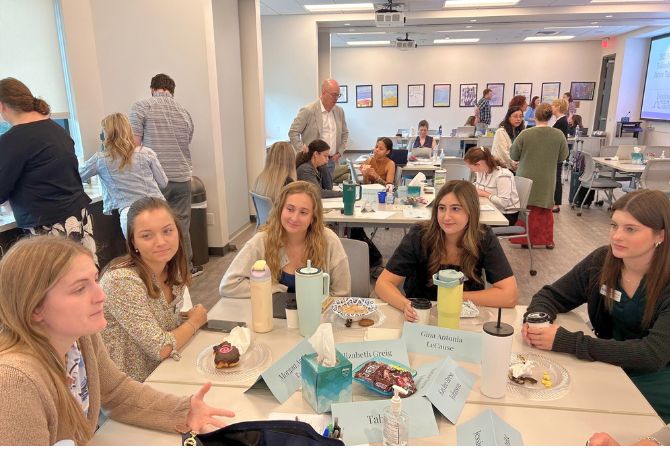
Literacy and the Impact of Story
This experience deepened our sense of responsibility. We didn’t just learn history—we
learned how to teach it with empathy and truth.
“This experience inspired me to become more engaged and informed, not just as a future educator, but as an active citizen,” said master’s student Jessica White.
As current events continue to mirror the warning signs of the past, we are more aware than ever of the relevance of this history and our role in sharing it.
Carrying the Stories Forward
The Warren Fellowship was a life-changing experience that cannot be repaid, only honored.
As future educators, we commit to teaching Naomi Warren’s story, and the stories of
others, with integrity and heart.
We will encourage our students to be upstanders, not bystanders. We will show them
how kindness, compassion and truth-telling can shape a better world. And above all,
we will remember that education is not just about content—it’s about conscience.
This is how we are, Honoring the past, inspiring the future and teaching empathy.
Gina LeCause '25 and Maggie Nguyen '25 are M.Ed. Curriculum and Instruction students specializing in language and literacy.